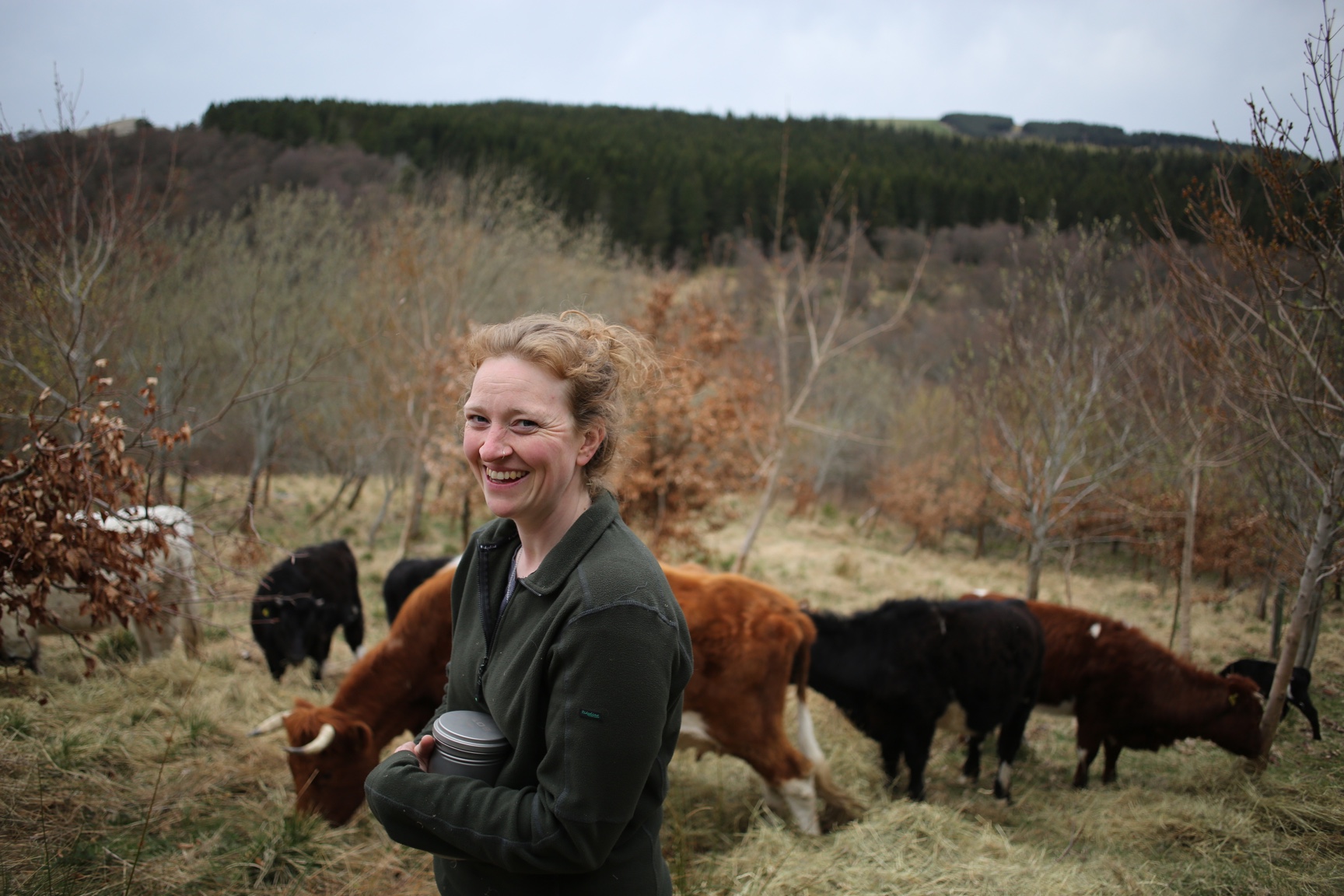When it comes to creating a healthy ecosystem rich in biodiversity with fully functioning soils, nature nails it. So why do we fight her?
When I first started farming, I had a ‘low capital approach’. Simply put, I couldn’t afford a to buy a farm and spend lots of money setting up the business. That was, in part, why I turned to a regenerative approach – it’s a great way of keeping costs down.
As new entrants, we came to farming with two ambitions – food production and ecological land management. As it turned out, regenerative agriculture would also help us meet our objectives around biodiversity, the creation of diverse abundant habitats and improving soil health.
Regenerative agriculture lets nature do the heavy lifting, as well as creating abundant ecosystems which produce more food, keep costs down and help us mitigate some of the effects of farming on nature and the climate. It has huge potential to reconfigure our food systems both in Scotland and further afield.
At GO Falkland this year, I’m chairing a number of “deep dive” sessions with Scottish farmers, my role is to give them a platform to share what they have been doing. That’s really important. Too often conferences focus on people who are making decisions about farming rather than farmers themselves. If we want to enable change, we have to hear from others on the ground, particularly those who’ve have already gone through that difficult, messy, awkward process of transition.
We also need different viewpoints. On the panel there’s Heather Close who farms with her dad in Ayrshire. We’ll be finding what they are doing to become owners of a 100% pasture-fed beef herd. That will be very different to Duncan Miller’s story. He farms in the Cairngorms and will be speaking about a project that we ran on species richness in pasture and how we can change the management to have both productivity and abundance outcomes.
While both are heading in the same direction, their transitions have been very different. It’s a crucial point; when it comes to the journey that is regenerative agriculture, we all need to find our own path. It’s not always easy, but a growing number of farmers have reached the destination, having trodden many of those paths already, and found a way around the potholes and road blocks.
It’s why GO Falkland is so important. Too often I hear ‘it won’t work on my farm because it’s too wet / dry / high / low / coastal / inland.’ But on the 1st July, we’ll hear from farmers across the country, each with their own unique circumstances and local environment, showing it can be done and inspiring others to overcome the barriers they face.
I’m also taking part in a panel discussion, ‘Scottish farmer’s voices in regenerative agriculture’. I am humbled to be sitting alongside some of my heroes – Alex Brewster from Dunkeld, David Aglen and Doug Christie who both farm in Fife, and Denise Walton who’s based in East Lothian. It should be good fun!
I’m keen to discuss the idea that ‘nature’s got this’. Nature knows how to create rich ecosystems and our time is probably better spent working with her, rather than against.
No doubt the current changes in policy will also be mentioned. As opposed to doing business as usual, which simply isn’t working, I feel that we need to be supportive of policy that helps us transition to more sustainable farming systems. It will be interesting to hear what the others think.
Nikki Yoxall is Head of Research for Pasture For Life. She sits on the Nature Friendly Farming Network Scotland Steering group and the board of NatureScot, as well as managing her own grazier business along with her husband. Nikki has a Masters in Sustainable Food and Natural Resources, and is studying for her PhD in Agroecological Transitions. Find out more at: https://www.pastureforlife.org/staff_profiles/nikki-yoxall/

